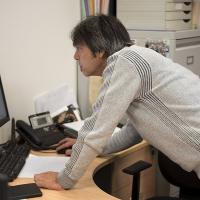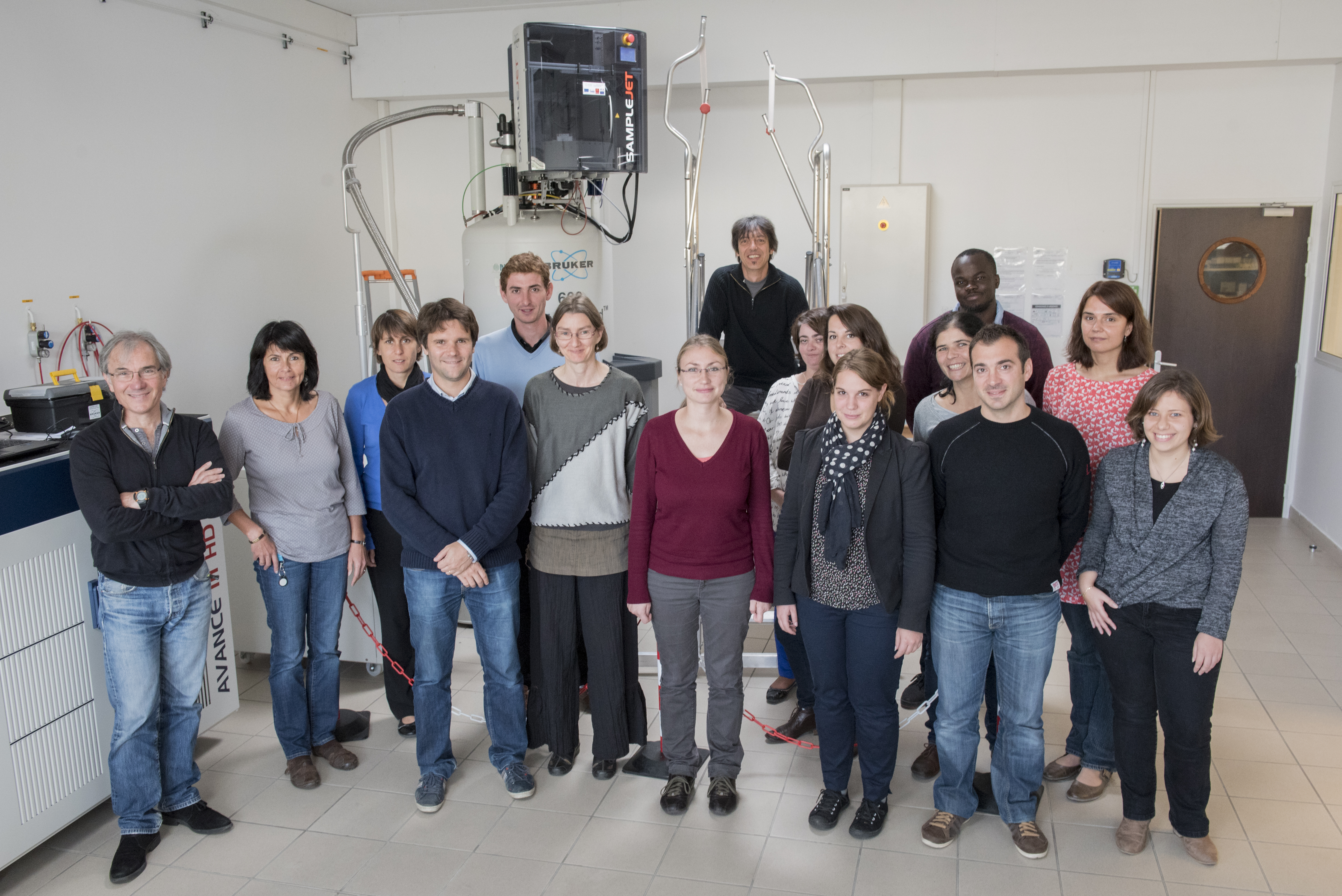
7 min
Laurent Debrauwer: Master and Spectrometer
Laurent Debrauwer has a taste for adventure: in addition to piloting his Citroën Dyane 6, he is at the helm of the food toxicology platform at INRA’s Toulouse centre. Though he comes off as quiet and reserved, Laurent is an avant-garde specialist – and a bit of a provocateur – as befitting the manager of a world-class, cutting-edge spectrometry platform.
Published on 08 December 2015
“Consumers want to know what they’re eating”, and Laurent Debrauwer tells them in an ingenious way. “Mass spectrometry is a fast-moving field!”. The analytical toxicology platform at the Toxalim unit offers the latest tools for measuring real exposure to contaminants and their impact on health by analysing body fluids such as blood and urine. A pioneer, Debrauwer decks out the lab with the most updated and powerful equipment, with one goal in mind: to provide an increasingly clear picture.
Go with the flow
Laurent Debrauwer is passionate in his creative efforts to take technique as far as possible. Results range from detecting toxic components to modelling exposure and its effects on metabolism. His lab, which works for national and European research programmes, is interdisciplinary: “we meet researchers from a range of fields, and their research drives our development”. Freedom, a stimulus for research
Laurent leads a team of 15 people at the lab, which conducts over 20,000 tests a year. “Each link in the chain is important”. He finds satisfaction in passing on his cutting-edge skills to the scientists of tomorrow. “Laurent was my thesis supervisor, and has consistently showed me how to enjoy my job”, says Emilien Jamin, a research engineer at the lab. Rather than a personal achievement, Debrauwer views the award as recognition for all those who work at technical facilities providing services to the scientific community. “I like team sports”, he admits, happy to hold up the trophy in the company of his colleagues. Ever the good captain, Laurent sets course guided by a single rule: “freedom as our primary work strategy. Public-sector research still leaves room for imagination in the achievement of set goals”.
Inventing tomorrow
Laurent has one eye on his spectrometers, and another on the future: “Laurent always has innovative ideas. He believes in what he does and is diplomatic, so people believe in his projects,” confides Isabelle Oswald, Deputy Director at the Toxalim unit. A taste for challenge brought Laurent to INRA in 1990. He is given free rein to find the unit’s first major equipment and put together a team: “it was a big job for a 26 year-old – a very lucky one”. In 1991 he began using one of the first electrospray sources to appear in France: “it was a major shift. Previously restricted to chemistry, mass spectrometry could now be used in biology and its many applications”. In the early 2000s, techniques became more generalized with the appearance of metabolomics. Here too, Laurent was one step ahead. The lab acquired NMR1 equipment and a high-resolution spectrometer: “these tools work extremely well together in analysing the effects of contaminants on metabolism”. A turning point was reached in 2006, when equipment was pooled together and platforms were organised into networks. “Early on, INRA recognised the need to coordinate its technical assets, and has supported our development”. Laurent finds inspiration in the scientific community working in his field by regularly hosting meetings about what he does: “the social aspect of science is important, despite increasing pressure and competition”. It is also the boost he needs to transform his innovative work into wonderful applications
What's next?
Laurent Debrauwer loves breaking new ground, and is acutely aware that the platform’s future depends on its ability to stay ahead of the innovation game. “There are a lot of creative things going on internationally. We need to invent new concepts to meet the challenges of integrative and predictive biology”. Next up? Mass spectrometry imaging. “Developing a spatial vision of metabolomes requires serious financial investment, and the skills to use the technology”, insists Laurent, like an explorer charting the course for his next adventure.
1 Nuclear magnetic resonance

- 52 years old, father of two
- PhD in organic and analytical chemistry, Aix-Marseille University
- Postdoctoral research in advanced mass spectrometry at the structural organic and biological chemistry lab (LCSOB) of the Université Pierre et Marie Curie, Paris 6
- Accreditation to direct research (HDR), Université Pierre et Marie Curie, Paris 6
- Hired by INRA as research engineer in mass spectrometry in 1990
- Secretary (2004-2005) and Chair (2006-2007) of the French Society for Mass Spectrometry
- Hobbies: football, cycling, jogging, music (blues, 70’s and 80’s rock), travel
Award
- 2015 INRA Award for Technological Innovation
